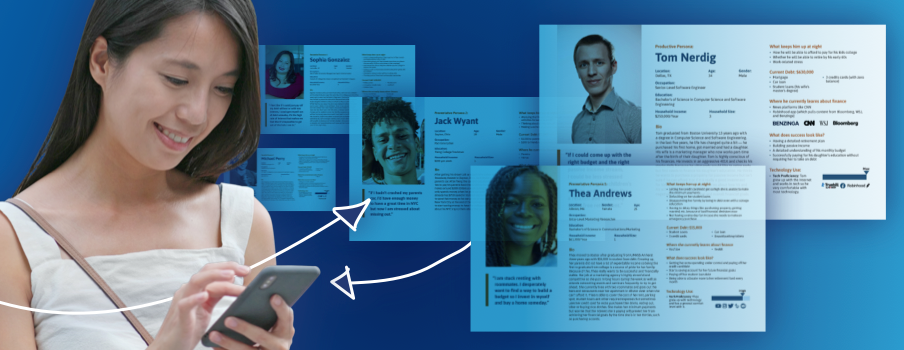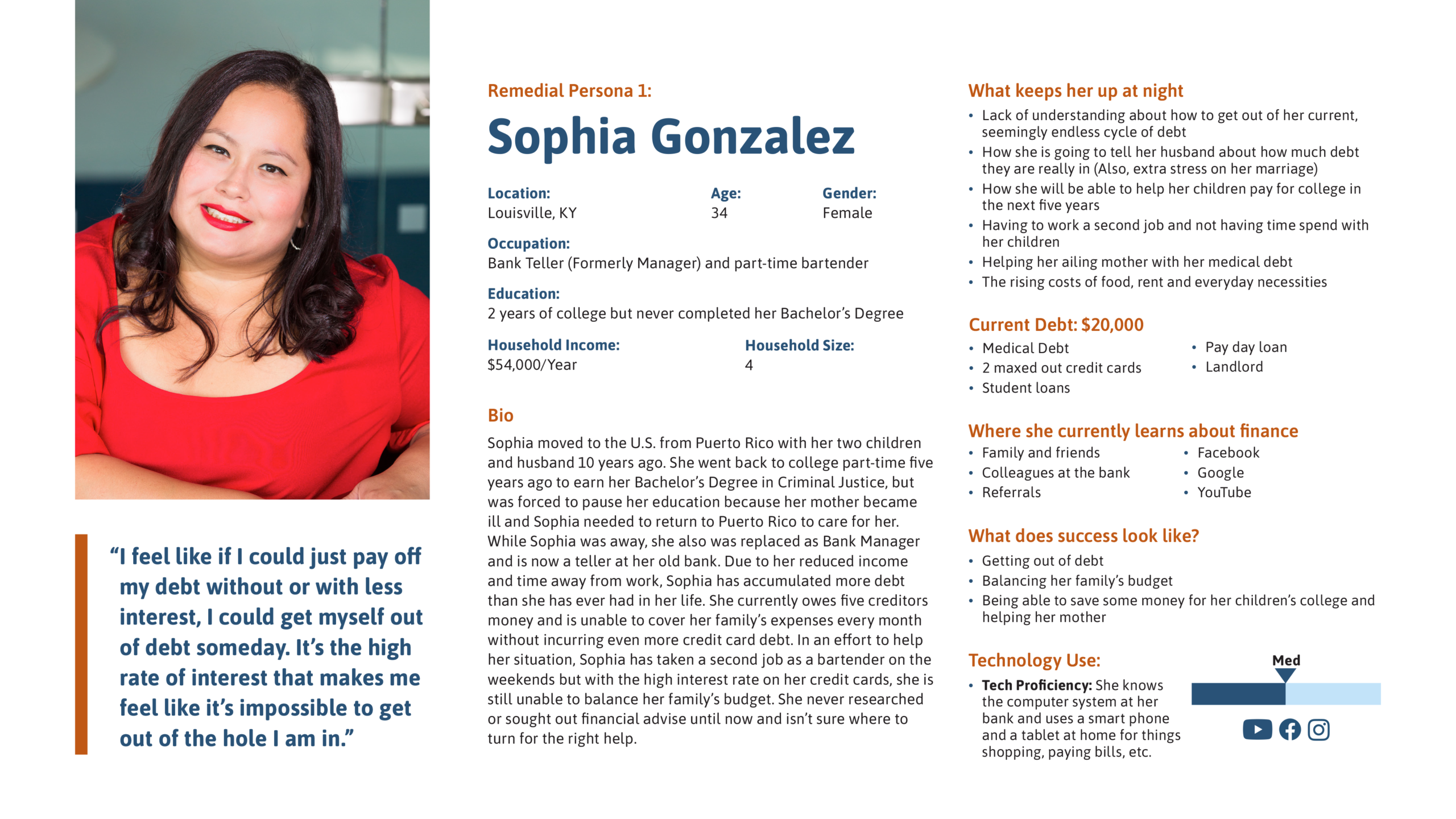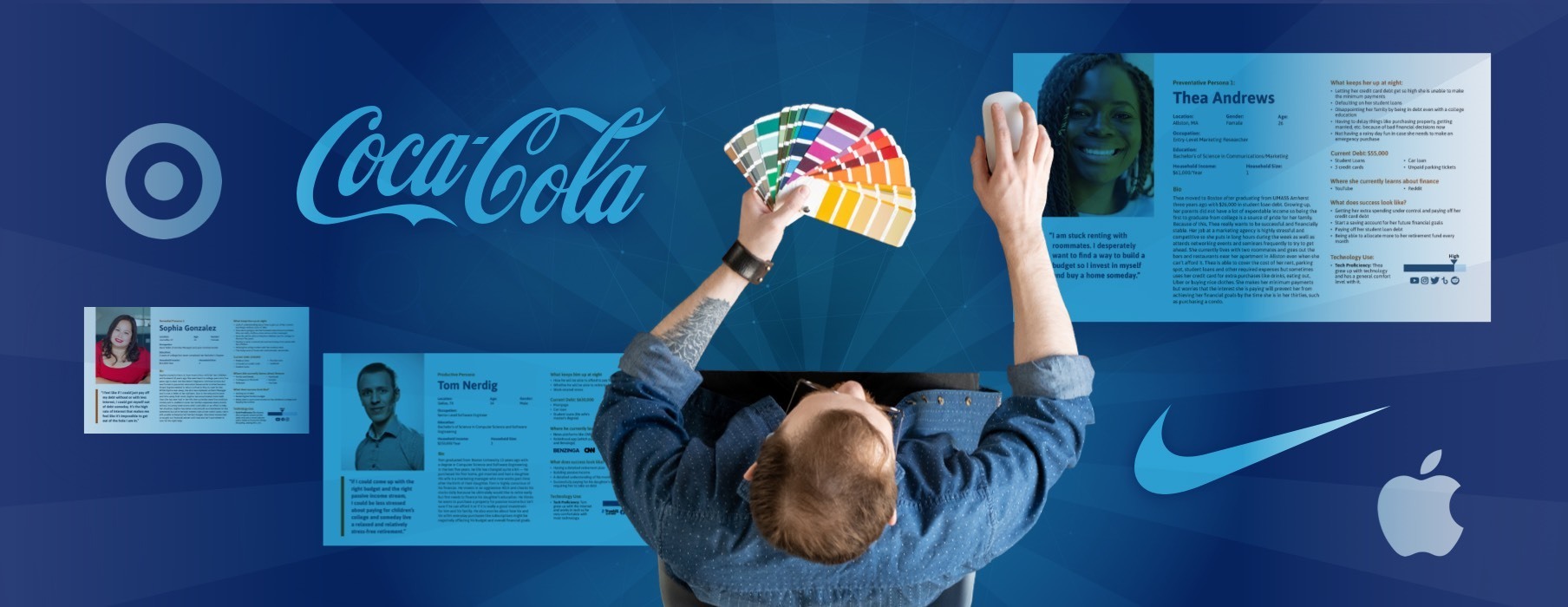Whether you’re developing a mobile application or a mobile-responsive website, it’s critical to understand who ultimately will be using your product. A great way to determine this is by creating user personas.
What are user personas?
User personas are theoretical descriptions of your ideal users. This information helps to uncover the different ways people search for and use your products. A typical well-developed user persona has a name, age, demographic, profession, and more which we will discuss later on.
The importance of building user personas
Creating user personas will help you better comprehend your users’ needs, experiences, behaviors, and goals. A deep understanding of user behavior allows you to define who a product is being created for and what is necessary or unnecessary from a user-centered point of view.
Unfortunately, we all have biases based on personal preferences and beliefs, but by creating personas it allows us to become removed from ourselves and recognize the needs and expectations that others have.
Understanding the needs of your users is vital to developing a successful product in your mobile app development strategy. Well-defined user personas will enable you to efficiently identify and communicate your user’s needs. User personas will also help you describe the individuals who will use your product, which is essential to your overall value proposition.
Developing user personas will also assist your business in making the best design decisions based on what your users want and need. They are also critical for understanding the design of a product as well as thinking about the buyer journey. If you ask any salesperson out there they likely will want to know the same thing – “Who is my buyer?” So it’s key to think about the user in all aspects.
Determining your user personas
Going through the process of creating user personas will allow you to better understand who is most likely to use your product. But before determining who they are, you first need to understand your user’s problems and their needs.
Grab a pen and jot down the answer to these questions to help identify your ideal user:
- Who are my target users?
- What is their story?
- What is their background?
- What is their demographic (e.g., gender, education, age)?
- What do they care about?
- What are their pain points or challenges?
- What expectations do they have when using a mobile application like mine?
- How do they use applications and other technology?
- What influences their decisions to buy or download applications like mine? (e.g., peers, work, or social media)
- How does our product specifically meet their needs and expectations?
- Which features or design do they require to keep using an application?
- Which mobile operating system do they prefer (iOS or Android)?
- What level of sophistication do they have on their phone?
- What other devices do they have (watch, fitness, …)?
- Do these users typically pay for apps or make in-app purchases?
What to include in your user personas
Don Norman says, “Personas only need to be realistic, not real, not necessarily even accurate (as long as they accurately characterize the user base).”
Here are a few characteristics a user persona should include:
- Persona name
- Photo
- Demographics (gender, age, location, marital status, family)
- Goals and needs
- Frustrations (or “pain points”)
- Behaviors
- Bits of personality (e.g. a quote or slogan that captures their personality)
- Career
How many user personas do you really need?
In most cases, you will be trying to target a range of audiences so one user persona will not be enough. So, how many do you need?
As you think about all the potential different users it’s easy to get caught up in the moment and believe that you may need to create a dozen or so. However you’ll soon realize that the more personas you create, the more they will begin to resemble each other, so in this case, less is more.
We suggest creating no more than four user personas.
Most brands you encounter will have audiences with characteristics that fall under a subset of primary personas (or the main targeted users). Having an overabundance can make user personas unnecessarily complicated. Remember that the goal of creating user personas is to gain insight into the bulk of your users, and four is plenty!
That being said, there are times when there are multiple different kinds of users – e.g., uber drivers vs riders, or admins vs hr vs dept heads vs users. In doing product strategy, especially in the early days, it’s important to think through your list of possible users.
User personas and UI/UX
One of the most important and beneficial components of creating user personas is that they help your product team find the answer to one of their most important questions, “Who are we designing for?” By understanding the expectations, concerns, and motivations of users, it’s possible to design a product that will satisfy their needs and lead to success. Well-defined user personas guide your designs from the very start!
Designers utilize what’s called a UCD (or user-centered design) which is an iterative design process where they focus on the users and their needs in each phase of the design process. In UCD, design teams involve users throughout the design process via a variety of research and design techniques, to create highly usable and accessible products for them.
Creating user personas will help you ask the right questions and answer those questions in line with the users you are designing for. User personas also help designers to achieve the goal of creating a good UX (or user experience). From user personas, designers are able to work more mindfully by keeping the real user in mind as they move the project forward. User personas in the UX process also contribute to building empathy, making key decisions, and stronger communication.
As a custom mobile app development company Rocket Farm Studios works with you to determine your target customer base through the development of user personas.
Looking to begin your own mobile app development project?
Not sure who your target users are?
Our friendly team would love to help! Let’s get started!









